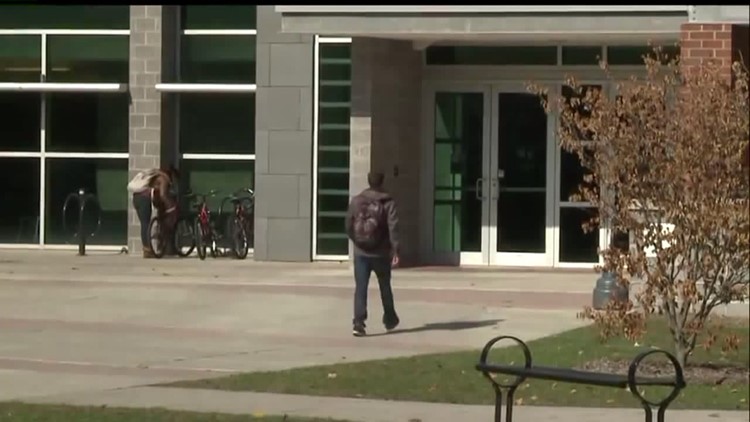Pick any three college freshmen entering school this Fall semester. One of them is suffering from some sort of mental illness, according to a study released by the World Health Organization in September.
The number of college students with a mental health issue is higher than ever before, measured at an estimated 35 percent. That's more than double the percentage in 1985, which was an estimated 16 percent.
11 percent of college students consider suicide at some point during their collegiate career according to a 2016 study. That's 6 to 8 percent higher than the same point in time.
This is not only a problem for students here at home. The issue spans the globe and has grown in the most recent generation. A variety of factors may be at play.
“It’s a totally different world. I was in school in the 70s. The pressure wasn’t there to get into your top college. When I was going to school there wasn’t even a thing as safe colleges and reach colleges. You applied to a couple schools, your parents dropped you off, said ‘See you at Thanksgiving’ and that was about it. It’s a totally different world for these kids," Kelsey Backels, Millersville University Director of Counseling said.
Backels also noted that more students are coming in already medicated for a variety of factors, from ADHD to manic depression.
So what could be some of the contributing factors to the college mental health crisis? What are our local schools doing about it on their campuses?
Our experts say, despite what the elder generation may think, the "Millennial" and "Gen Z" groups are not lazier or mentally weaker. They have more on their plates than their counterparts of decades past.
"There are more competing demands that our students are trying to balance, and a variety of things that I didn’t have to face," Matthew Shupp, Shippensburg Associate Professor said.
Mounting debt due to a higher cost of college, larger expectations and technology all play a possible role in the increase of stress and anxiety across the board. Add on the element of social media, and you get a troublesome picture if used improperly.
"It can be misused when students get too tied into it. You see the good side of everyone on there. They don’t post pictures of them crying over being broken up. You only see the stuff people want you to see and it gives you a really thwarted look of what’s out there," Backels said.
But our local schools believe they have a growing number of resources as the number of counseling sessions increase.
"We offer programs based on things we see in the counseling center. We have stress management where we bring in therapy dogs and time for relaxation activities. We’ve had a wellness fair and do things based on self care," Jessi Nocella of the York College Counseling Center said.
Schools also now train students in leadership positions, like resident advisors, how to recognize when their residents, classmates and friends may be facing a number of difficulties.
“My biggest thing is how much I see them," Joseph Jacobs, a Resident Advisor at Shippensburg University said. "I’m usually in the residents hall a good amount of the time. If I don’t see them walking in or out of the building, I’ll go check on them. For first years, we get attendance reports every week. They’ll say what classes they miss how many times they missed it. It’s the RA’s job to go knock on their door.”
"Part of the increase may simply be a combination of a decrease in stigma and increase in mental awareness," Shupp said. "It might be less taboo having a counselor as part of your mental wellness. When I was going to college, we’d celebrate going to the gym and eating well as part of someone’s physical wellness. But the idea of going to a counselor and focusing on your mental wellness was more taboo. I think while there may still be that stigma, I’ve found it’s far less than in college."
And despite the increase, our local experts are not discouraged by the numbers. The next generation of college student actually encourages them.
"This population of student is probably the most resilient student I’ve seen, even though it might not appear like that originally," Shupp said.
With a take home message for skeptics of visiting their university's counseling center.
"There’s not going to be another time in your life you’re going to get somebody’s undivided attention for 50 minutes every week for free,” Backels said.
Bradon Long sat down with Matthew Shupp from Shippensburg University's Master's Program in Counseling on FOX43 Morning News to further discuss the topic:



